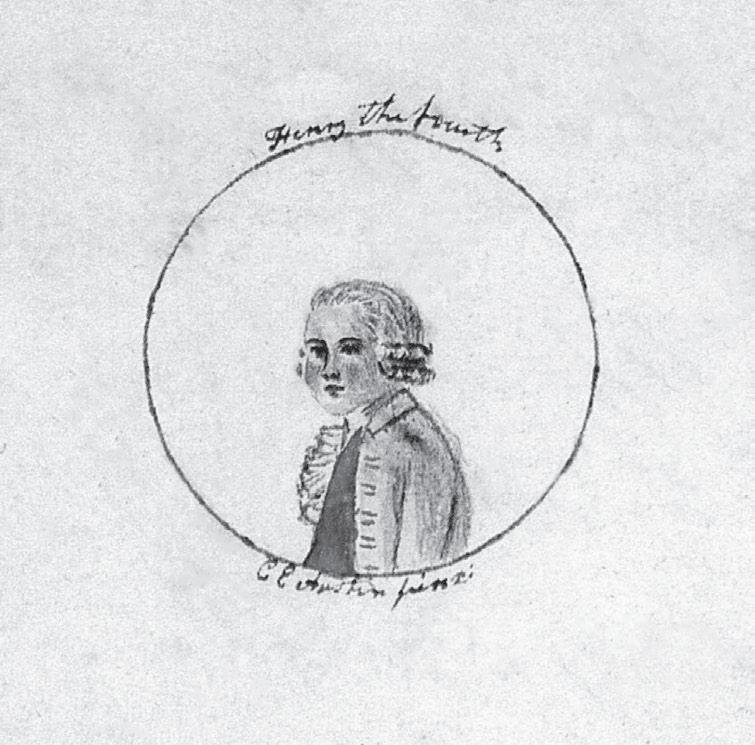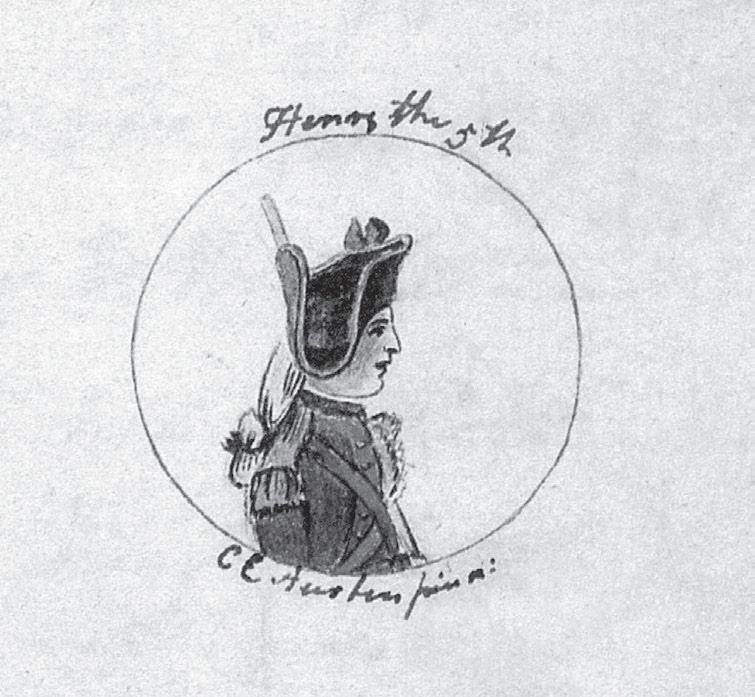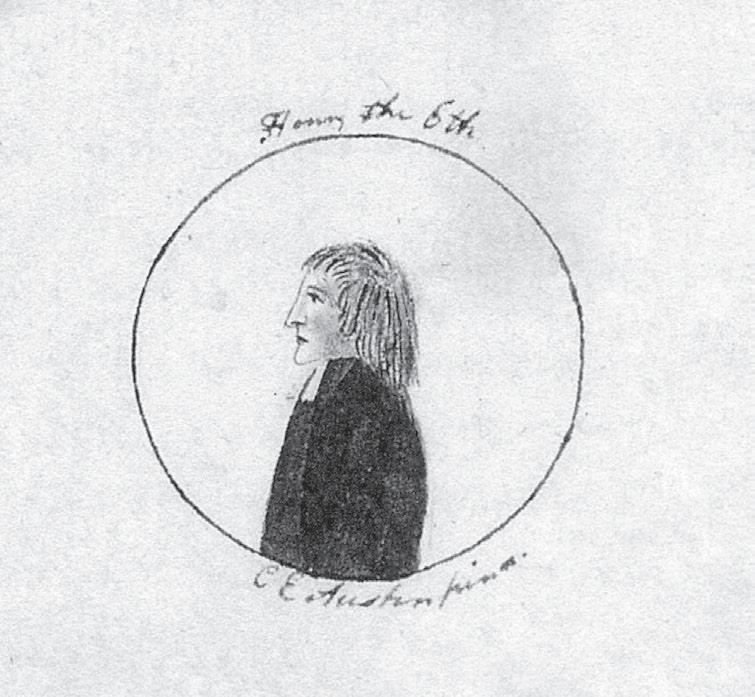
The History of England by a Partial, Prejudiced and Ignorant Historian
Jane Austen
1775–1817
a p enguin since 1938


Jane Austen
1775–1817
a p enguin since 1938
penguin archive
UK | USA | Canada | Ireland | Australia
India | New Zealand | South Africa
Penguin Books is part of the Penguin Random House group of companies whose addresses can be found at global.penguinrandomhouse.com.
Penguin Random House UK , One Embassy Gardens, 8 Viaduct Gardens, London SW 11 7BW
penguin.co.uk
These pieces were written between 1787 and 1793 and first published posthumously. The illustrations in ‘A History of England’ are by Austen’s sister, Cassandra. Austen’s spellings have been modernized for this edition.
Selected from Love and Freindship and Other Youthful Writings, Penguin Classics 2025 001
No part of this book may be used or reproduced in any manner for the purpose of training artificial intelligence technologies or systems. In accordance with Article 4(3) of the DSM Directive 2019/790, Penguin Random House expressly reserves this work from the text and data mining exception.
Set in 11.2/ 13.75 pt Dante MT Std
Typeset by Jouve (UK ), Milton Keynes
Printed and bound in Great Britain by Clays Ltd, Elcograf S.p.A.
The authorized representative in the EEA is Penguin Random House Ireland, Morrison Chambers, 32 Nassau Street, Dublin D 02 YH 68
A CIP catalogue record for this book is available from the British Library
ISBN : 978–0–241–74730–8
Penguin Random House is committed to a sustainable future for our business, our readers and our planet. This book is made from Forest Stewardship Council® certified paper.
from the reign of Henry the 4th to the death of Charles the 1st
By a partial, prejudiced, and ignorant historian.
To Miss Austen eldest daughter of the Revd George Austen, this work is inscribed with all due respect by The Author
N.B. There will be very few dates in this history.

Henry the 4th ascended the throne of England much to his own satisfaction in the year 1399, after having prevailed on his cousin and predecessor Richard the 2 d, to resign it to him, and to retire for the rest of his life to Pomfret Castle, where he happened to be murdered. It is to be supposed that Henry was married, since he had certainly four sons, but it is not in my power to inform the reader who was his wife. Be this as it may, he did not
History of England
live for ever, but falling ill, his son the Prince of Wales came and took away the crown; whereupon the king made a long speech, for which I must refer the reader to Shakespeare’s plays, and the prince made a still longer. Things being thus settled between them the king died, and was succeeded by his son Henry who had previously beat Sir William Gascoigne.

This prince after he succeeded to the throne grew quite reformed and amiable, forsaking all his dissipated companions, and never thrashing Sir William again. During his reign, Lord Cobham was burnt alive, but I forget what for. His majesty then turned his thoughts to France, where he went and fought the famous Battle of Agincourt. He afterwards married the king’s daughter Catherine, a very agreeable woman by Shakespeare’s account. In spite of all this, however, he died, and was succeeded by his son Henry.

I cannot say much for this monarch’s sense—Nor would I if I could, for he was a Lancastrian. I suppose you know all about the wars between him and the Duke of York who was of the right side; if you do not, you had better read some other history, for I shall not be very diffuse in this, meaning by it only to vent my spleen against, and show my hatred to all those people whose parties or principles do not suit with mine, and not to give information. This king married Margaret of Anjou, a
Jane Austen woman whose distresses and misfortunes were so great as almost to make me who hate her, pity her. It was in this reign that Joan of Arc lived and made such a row among the English. They should not have burnt her— but they did. There were several battles between the Yorkists and Lancastrians, in which the former (as they ought) usually conquered. At length they were entirely overcome; the king was murdered—the queen was sent home—and Edward the 4th ascended the throne.